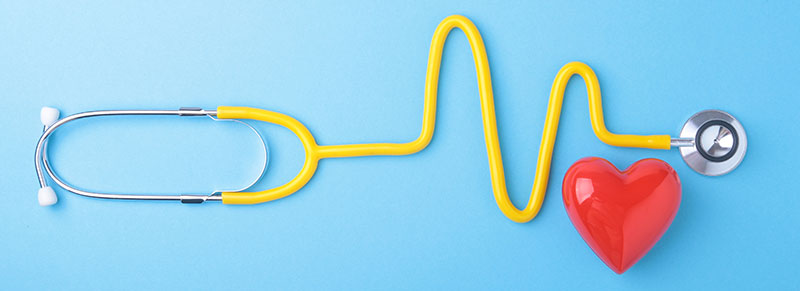By Nikhil Iyengar, MD
Having trouble distinguishing fact from fiction when it comes to heart disease? You’re not alone. Here are ten common myths.
- Myth: Heart disease medications do more harm than good.
Fact: While no one wants to take medications, they can be incredibly helpful in preventing, treating and/or managing heart disease. Before medications become treatment options, they’ve been rigorously studied, and the results have shown that those who took the medication had better health outcomes than those who did not. - Myth: A lifetime of good health means I won’t get heart disease.
Fact: Heart disease can build slowly, or it can develop suddenly. Past health status does not necessarily indicate future health. The reasons why some people develop disease and others don’t aren’t always explainable. It’s important to realize that our health is always changing. - Myth: I can’t get heart disease if no one in my family has/had it.
Fact: Diseases develop for a variety of reasons. Some are related to genetics and others are tied to environment and lifestyle factors. Not having a family history of heart disease is not a guarantee that you won’t get it. - Myth: I don’t need medication since I eat a healthy diet.
Fact: What’s considered a healthy diet for one person may not be for the next. The availability of medication that’s effective in lowering cholesterol has spurred the Food and Drug Administration to be more lenient when it comes to dietary restrictions on cholesterol. However, this does not mean we have permission to eat cheeseburgers at every meal. - Myth: Taking medication to lower blood pressure leads to feeling sluggish.
Fact: Failure to manage high blood pressure can have life-threatening consequences. It may feel great when you’re doing it, but it’s very bad for the long-term health. The same can be said for your body when you’re living with high blood pressure. You may feel a bit tired when your blood pressure is being lowered, but you’ll reap a lot of health benefits. - Myth: Quitting smoking means it no longer has an impact on your risk of heart disease.
Fact: Acute heart disease risk seems to drop when a person stops smoking, but the chronic changes related to smoking likely continue to affect your body and the health of your organs and internal systems. - Myth: Red wine is good for the heart and vascular system.
Fact: While it was once widely believed that red wine offered some health benefits for the heart and vascular system, recent studies show no significant benefit. - Myth: Women have a greater risk of developing breast cancer than heart disease.
Fact: The Centers for Disease Control and Prevention cite heart disease as the No. 1 cause of death among women in the U.S. A woman’s cycling hormones provide protective health benefits, but once a woman goes through menopause her risk of heart disease becomes higher than a man’s. - Myth: Procedures to fix a heart problem means no further treatment is needed.
Fact: Procedures such as stent placement or bypass surgery are done to correct an acute manifestation of a chronic condition. Preventing future acute episodes requires a mix of exercise, diet and medication. - Myth: Firsthand experiences from friends, family and/or the internet offer reliable information on managing heart disease.
Fact: Despite having a wealth of information about heart disease prevention and treatment at your fingertips, nothing is more beneficial than input from a physician who knows you and is invested in helping you live a longer, healthier life. Work with a trusted health professional to make sure the information you’re getting is current and that your care plan is being guided by an expert in the field.





